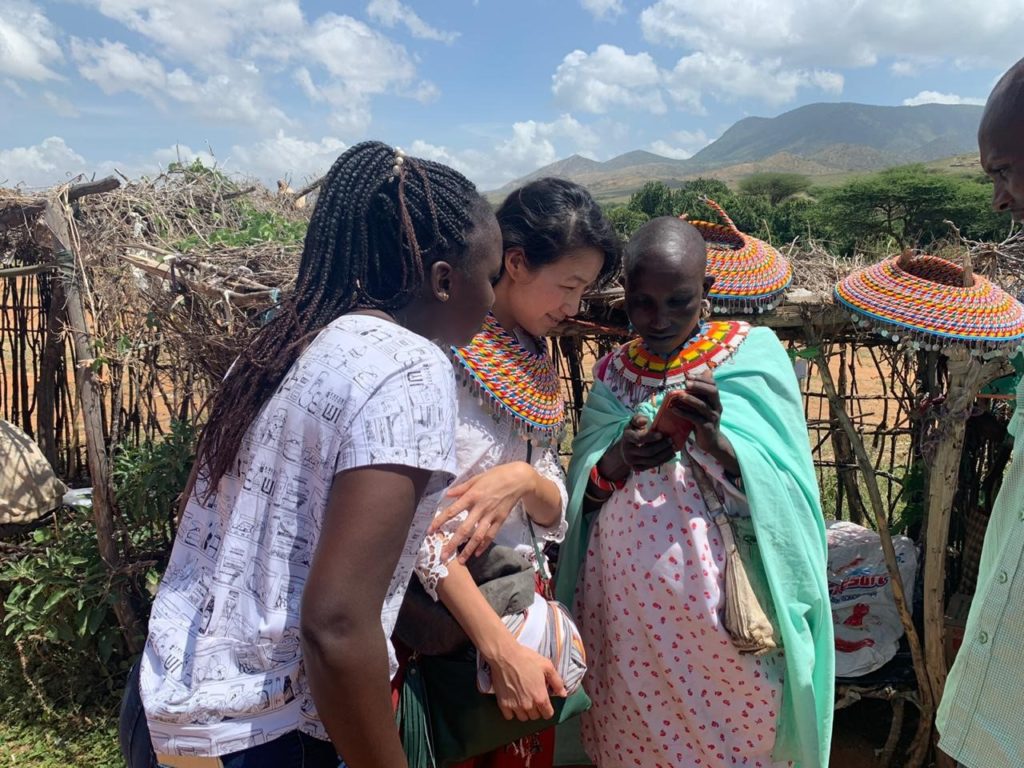
“Like with many people working in development, I’ve always wanted my work to have an impact. There are different ways of thinking about impact. For me, I found that the term was deeply tied to sustainable economic development.”
Zoe So, Whole Planet Foundation
Whole Planet Foundation is a private, not-for-profit organization established by Whole Foods Market. The foundation is dedicated to enabling access to capital for entry level businesses in some of the world’s poorest regions.
Zoe So is responsible for managing Whole Planet Foundation’s partnerships in Eastern and Southern Africa.
Prior to her role at Whole Planet Foundation, Zoe supported financial inclusion and youth empowerment initiatives in Uganda, Tanzania, and Sierra Leone. She has also worked in Afghanistan and the Democratic Republic of Congo and served in the Peace Corps as a small enterprise development volunteer in Senegal.
In recent years, Zoe has moved away from focusing on addressing conflict and crisis situations to programs that seek to foster long-term economic development.
“Like with many people working in development, I’ve always wanted my work to have an impact. There are different ways of thinking about impact. For me, I found that the term was deeply tied to long-term development.
In the conversation below, Zoe talks about why Whole Planet Foundation decided to partner with the BOMA Project, a moment from a BOMA field trip that has stayed with her, and why it’s important that people continue to pay attention to fundamental issues of financial inclusion even as the world copes with the economic aftershocks of COVID-19.
What are some of Whole Planet Foundation’s priorities in Eastern Africa?
The mission of Whole Planet Foundation is to connect entry-level entrepreneurs all over the world to business capital. We’ve been focused on partnering with microfinance institutions that lend money to these entrepreneurs in a way that’s supportive, accessible, affordable, and transparent.
Why did you decide to partner with the BOMA Project?
We’ve seen that the microfinance industry has changed over the years. In some ways, it’s started to go more “up market.” As a result, we’ve started to expand the type of partners that we work with to reach more entry-level entrepreneurs. For example, we’ve started working with organizations that enable agricultural credit, and asset finance partners who provide essential support for assets that are delivered at the proverbial last mile.
The partnership with the BOMA project is a continuation of this journey. We decided to partner with BOMA to enable entry level entrepreneurs with access to capital – these are people who would have been left out of a conventional microfinance program. Partnering with the BOMA Project allows us to stay true to our mission of supporting entrepreneurs while being more inclusive.
BOMA enables financial inclusion on two important fronts. First, the organization deploys its poverty graduation programs in highly rural and excluded communities. BOMA also enables participants with access to both markets and market information, which is a huge part of financial inclusion.
In addition to BOMA’s impressive depth of programming and the ability to deliver on financial inclusion, I was also impressed by how BOMA uses the Performance Insights platform to get real-time data into what’s working and what’s not. It’s really allowed Whole Planet Foundation and BOMA to figure out where we can make investments in order to get the most value for program participants.
“I was impressed by how BOMA uses the Performance Insights platform to get real-time data into what’s working and what’s not. It’s really allowed Whole Planet Foundation and BOMA to figure out where we can make investments in order to get the most value for program participants.”
Zoe So
Were there any moments from your field visits that have stayed with you?
There’s a moment that has really stayed with me after the Samburu field visit. This was right after a grant disbursement of business capital. The BOMA staff stayed with the participants after the meeting and made sure that every one of them got home safely. This moment really personifies the thoughtfulness with which BOMA approaches its work. I haven’t seen that level of care across many programs.
How has the COVID-19 pandemic changed work at the Whole Planet Foundation?
Before the outbreak of the pandemic, up to 70% of my time at work was spent on traveling to the field. Obviously, that can’t happen anymore. So now, we’re looking at ways we can address this gap – even if it’s something as simple as regular phone calls with partners and participants in the field.
At Whole Planet Foundation, we’re also staying alert to not getting tunnel vision, and focusing just on COVID-19. To give just one example, the economy in Kenya had some challenges even before the pandemic. Like in so many places around the world, COVID-19 has really shed a light on prevailing inequalities. I think it’s especially important now to continue having the conversations we were having prior to the outbreak of the pandemic.
Like in so many places around the world, COVID-19 has really shed a light on prevailing inequalities. I think it’s especially important now to continue having the conversations we were having prior to the outbreak of the pandemic.
Zoe So
